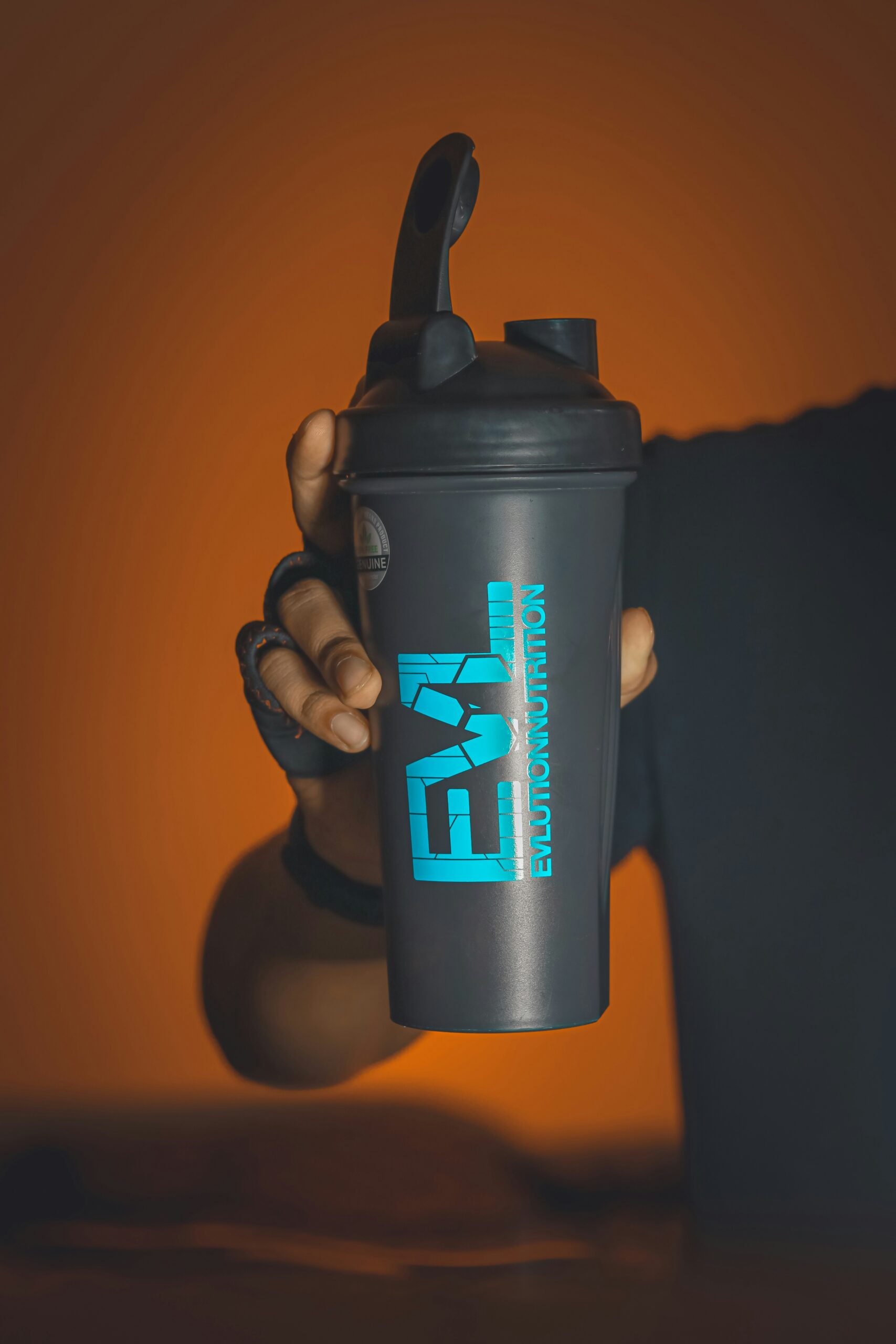Are Pre-Workout Supplements Bad For You?
In today’s fast-paced world, finding the energy to squeeze in a workout can be a challenge. With busy schedules and endless to-do lists, many people turn to pre-workout supplements to give them that extra boost needed to power through their exercise routines. But with so many options on the market, the question arises: Are pre-workout supplements bad for you? Let’s dive into the world of pre-workout supplements, explore what they’re made of, how they work, and whether they’re truly beneficial or potentially harmful to your health.
The Buzz Around Pre-Workout Supplements
Pre-workout supplements have become increasingly popular in the fitness community, promising to enhance performance, increase energy, and improve focus during workouts. These supplements typically come in powdered form and are mixed with water to create a drink that’s consumed before hitting the gym. The appeal is obvious—who wouldn’t want a little extra energy and focus when they’re about to tackle a tough workout?
But like any supplement, it’s essential to understand what’s inside that scoop of powder. Pre-workout supplements often contain a mix of ingredients designed to increase energy levels, boost endurance, and improve muscle performance. However, not all ingredients are created equal, and some may have potential side effects.
Common Ingredients in Pre-Workout Supplements
To understand whether pre-workout supplements are bad for you, it’s important to break down their most common ingredients. Here’s a look at what you might find in your favorite pre-workout:
- Caffeine: Perhaps the most well-known ingredient, caffeine is a powerful stimulant that increases alertness, energy, and focus. It’s also been shown to improve athletic performance by enhancing endurance and reducing perceived effort. However, too much caffeine can lead to jitters, increased heart rate, and even anxiety.
- Creatine: This compound is naturally found in muscle cells and helps produce energy during high-intensity exercise. Creatine is one of the most researched supplements, with studies showing it can improve strength, power, and muscle mass. While generally considered safe, creatine can cause bloating and may not be suitable for everyone.
- Beta-Alanine: This amino acid helps buffer acid in muscles, potentially reducing fatigue during intense exercise. It’s known for causing a tingling sensation in the skin, which some people find uncomfortable. While not harmful, it can be off-putting for some users.
- Nitric Oxide Precursors: Ingredients like L-arginine and L-citrulline are included to increase nitric oxide production in the body, which can improve blood flow and enhance muscle pumps. These ingredients are generally safe, but their effectiveness can vary from person to person.
- BCAAs (Branched-Chain Amino Acids): BCAAs are included to support muscle recovery and reduce muscle breakdown during exercise. While they’re generally safe, their necessity in a pre-workout supplement is debated, especially if you’re already consuming adequate protein in your diet.
- Sugar and Artificial Sweeteners: To improve taste, many pre-workouts contain sugar or artificial sweeteners. While these ingredients are generally considered safe, excessive sugar consumption can lead to energy crashes, and some artificial sweeteners may cause digestive issues.
The Potential Downsides
While pre-workout supplements can offer benefits, they’re not without potential downsides. Understanding these risks is crucial to making an informed decision about whether to include them in your routine.
Overconsumption of Stimulants
One of the most significant concerns with pre-workout supplements is the overconsumption of stimulants, particularly caffeine. The caffeine content in some pre-workouts can be as high as 300 milligrams per serving—the equivalent of about three cups of coffee. For some people, especially those sensitive to caffeine, this can lead to adverse effects like insomnia, jitters, increased heart rate, and anxiety.
If you’re someone who regularly consumes coffee, tea, or other caffeinated beverages, adding a high-caffeine pre-workout to your routine can easily push you over the recommended daily limit. This can lead to dependency, tolerance, and the need for even higher doses to achieve the same effect, which can be harmful in the long run.
Digestive Issues
Another common issue with pre-workout supplements is digestive discomfort. Ingredients like artificial sweeteners, sugar alcohols, and high doses of certain amino acids can cause bloating, gas, and diarrhea in some individuals. If you have a sensitive stomach, you may want to be cautious about the ingredients in your pre-workout or consider skipping it altogether.
Unregulated Ingredients
The supplement industry is notoriously under-regulated, meaning that not all pre-workout products are created with safety and quality in mind. Some supplements may contain unlisted ingredients, harmful contaminants, or inaccurate dosages. This lack of regulation can make it challenging to know exactly what you’re putting into your body, potentially leading to unexpected side effects or interactions with other medications you might be taking.
Dependency and Tolerance
Relying on pre-workout supplements for energy can lead to dependency, where you feel unable to work out without them. Over time, your body may build up a tolerance, requiring you to take higher doses to achieve the same effects. This cycle can be difficult to break and may lead to long-term health issues if not managed carefully.
The Importance of Timing and Dosage
If you decide to use pre-workout supplements, timing and dosage are key factors to consider. Taking a pre-workout too late in the day can interfere with sleep, especially if it contains a high dose of caffeine. It’s generally recommended to consume pre-workout supplements 30 to 60 minutes before exercise, but individual tolerance varies.
Start with a lower dose to assess your body’s response, and be mindful of the total amount of caffeine and other stimulants you’re consuming throughout the day. Remember, more isn’t always better, and it’s crucial to listen to your body’s signals.
Alternatives to Pre-Workout Supplements
If you’re concerned about the potential downsides of pre-workout supplements, there are plenty of natural alternatives to help boost your energy and performance without the risks. Here are a few options to consider:
Proper Nutrition
One of the most effective ways to fuel your workout is through proper nutrition. Eating a balanced meal or snack that includes carbohydrates, protein, and healthy fats before your workout can provide sustained energy and improve performance. For example, a banana with peanut butter, a bowl of oatmeal, or a smoothie with fruits and protein powder can be great options.
Hydration
Dehydration can lead to fatigue, decreased performance, and even injury. Make sure you’re adequately hydrated before, during, and after your workout. Water is usually sufficient for most workouts, but for longer or more intense sessions, you might benefit from an electrolyte drink.
Sleep and Rest
No supplement can replace the benefits of a good night’s sleep. Ensuring you get enough rest is crucial for maintaining energy levels, muscle recovery, and overall performance. If you’re consistently tired, focus on improving your sleep habits rather than relying on stimulants to get through your workouts.
Natural Stimulants
If you’re looking for a little boost without the potential side effects of pre-workout supplements, consider natural stimulants like green tea or coffee. These options provide caffeine, antioxidants, and other beneficial compounds without the added artificial ingredients found in many pre-workout products. Just be mindful of your total caffeine intake throughout the day.
Mindfulness and Mental Preparation
Sometimes, the best way to prepare for a workout is to focus on your mental state. Techniques like deep breathing, meditation, or visualization can help you get in the right mindset and increase your focus during exercise. Taking a few minutes to center yourself before hitting the gym can make a significant difference in your performance.
Making an Informed Decision
So, are pre-workout supplements bad for you? The answer isn’t black and white—it depends on the individual, the product, and how it’s used. For some people, pre-workout supplements can be a helpful tool to enhance their exercise routine, provided they’re used responsibly. However, they’re not necessary for everyone, and there are potential risks to consider.
If you’re thinking about incorporating a pre-workout supplement into your routine, do your research. Look for products from reputable brands, check the ingredient list, and be mindful of the dosages. Consider starting with a lower dose to see how your body reacts, and avoid using pre-workouts as a crutch for poor nutrition, lack of sleep, or other lifestyle factors.
Ultimately, the decision to use pre-workout supplements should be based on your individual needs, goals, and how your body responds. Listen to your body, prioritize your overall wellness, and remember that no supplement can replace a balanced diet, proper hydration, and adequate rest.
Final Thoughts: Prioritizing Your Wellness
In the quest for better performance and more energy, it’s easy to overlook the basics. But when it comes to wellness, simplicity often wins. While pre-workout supplements can provide a quick boost, they’re not a magic solution. Focusing on whole foods, proper hydration, sufficient rest, and mental preparation can often provide the same, if not better, results—without the potential downsides.
Remember, your health is a long-term investment. Prioritizing wellness in all areas of your life, from your diet to your sleep habits, will ultimately lead to better performance, more energy, and a healthier, happier you. So, whether you decide to use pre-workout supplements or not, make sure you’re taking a holistic approach to your fitness journey. Your body—and mind—will thank you.





